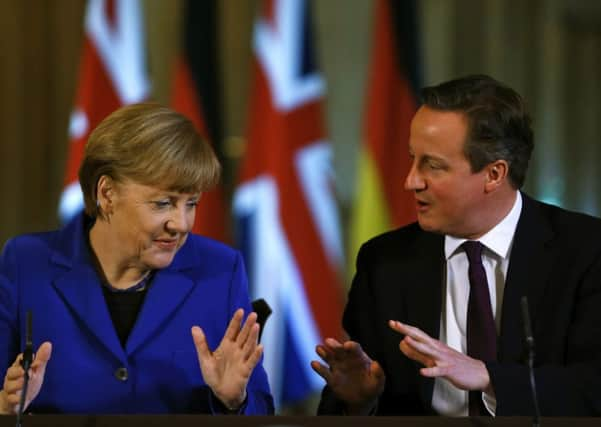Merkel pays poignant tribute to war victims


Dressed in cornflower blue, a colour synonymous with Margaret Thatcher, Mrs Merkel became the first leader of Germany to be afforded the historic honour of addressing both MPs and peers since the collapse of the Berlin Wall and unification.
This was a day when Mrs Merkel described Britain “an important ally” of Germany during talks with David Cameron which also covered the EU and Ukraine crisis. She later met the Queen for tea.
Advertisement
Hide AdAdvertisement
Hide AdBut the abiding memory was the poignancy of her words ahead of events to mark the First World War’s centenary and also the 70th anniversary of the D-Day landings.
In a building that had been bombed by the Luftwaffe more than a decade before her birth, Mrs Merkel delivered a personal speech in which she said that Germany was “grateful” to the UK for the trust shown after the Second World War and “the break in civilisation” that the Holocaust represented.
She added: “This is a special year of commemoration for Britain, where you remember your dead, your losses and the untold losses that Germany brought through these wars to you. As German Chancellor, I bow my head before the victims of these horrible wars.
“What would have become of Europe if the people of this country had not put up such courageous resistance, part of the time standing all alone? What would have been the consequences if you had not found the strength to protect your way of life and to keep alive the hopes of all the nations of Europe for a better future in freedom?
“The UK has no need to furnish proof of its commitment to Europe and its basic values.”